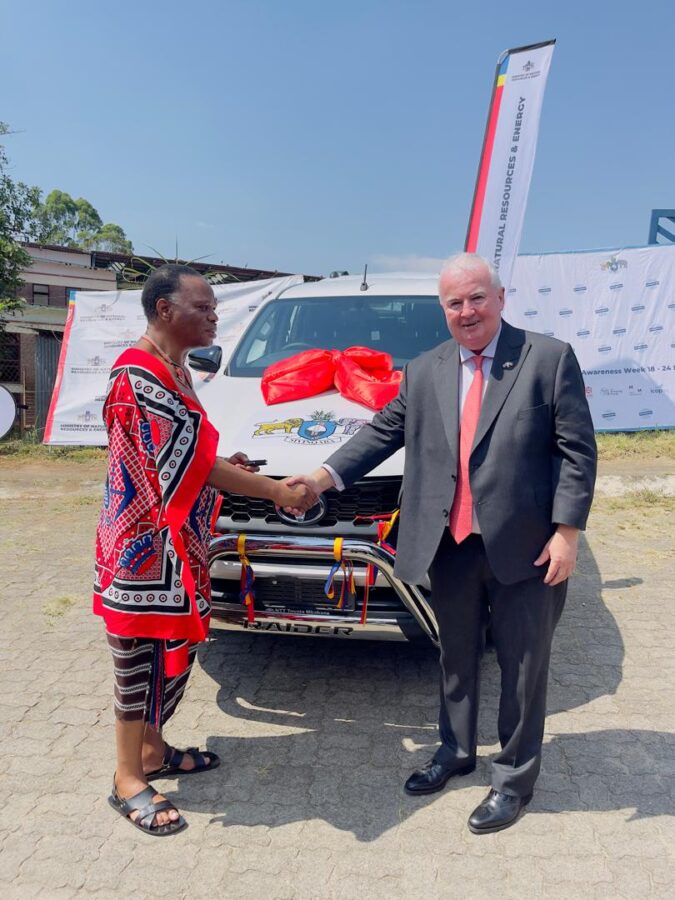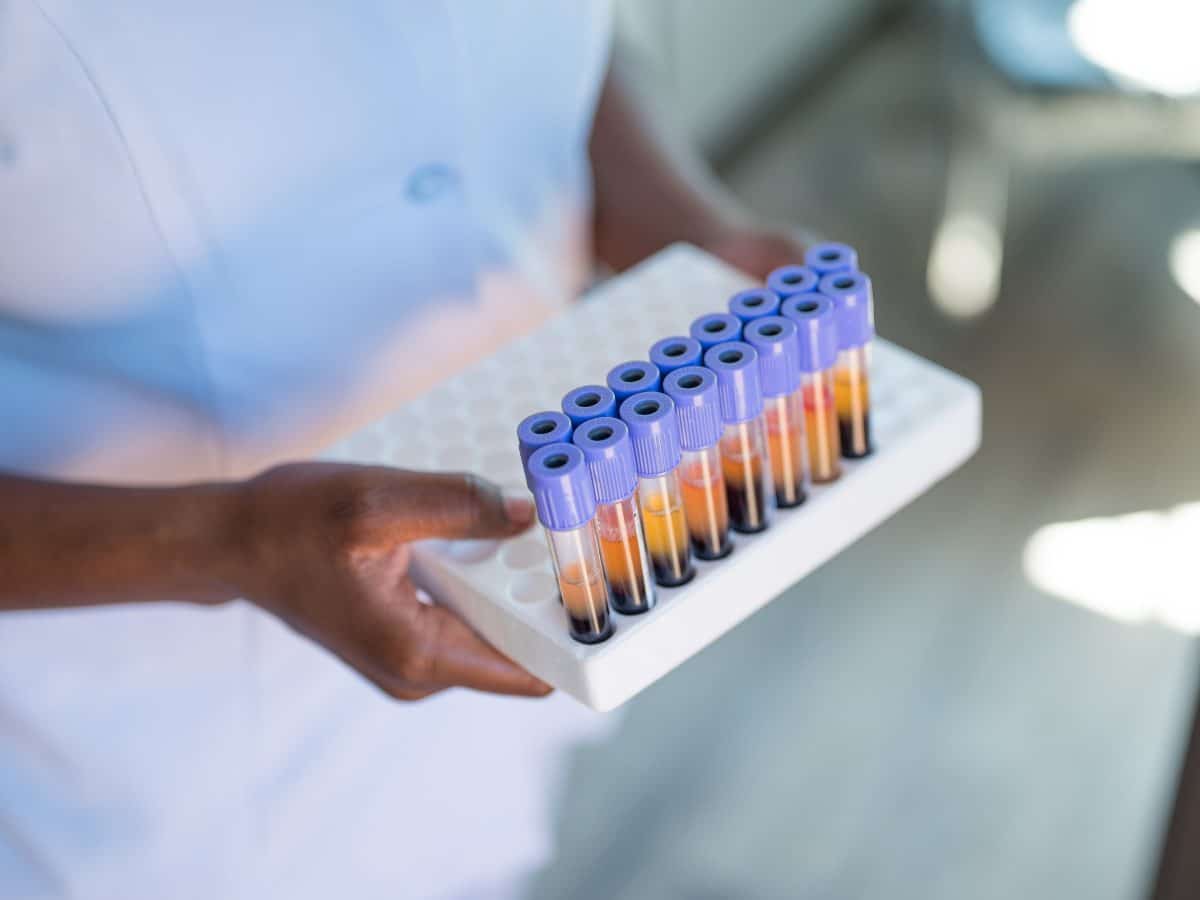From December 5-7, 2024, ICAP in Eswatini hosted visitors from the UK aid-based Fleming Fund and Mott MacDonald – the management agency for the Fleming Fund’s Eswatini country grant – to showcase project sites and major progress achieved within ICAP’s Strengthening Surveillance Systems for Antimicrobial Resistance (AMR) program.
The AMR surveillance program, which is supported by the Fleming Fund, has reached significant milestones in the areas of AMR governance, capacity building, human resources strengthening, laboratory enhancements, mentorship support, and antimicrobial stewardship over the course of nearly five years. ICAP is working with its partners to strengthen surveillance systems for AMR, antimicrobial use, and antimicrobial consumption in both the human and animal sectors in Eswatini through a One Health approach.
AMR is the resistance of microbes such as fungi, bacteria, viruses, and parasites to antimicrobial medicines. This resistance can be exacerbated by over-dispensing of antimicrobial medicines, poor infection prevention and control and sanitation practices at hospitals and clinics, and lack of surveillance systems for monitoring the use of antimicrobial agents, among other factors. The rise of AMR is a major public health concern because infections with resistant microbes lead to severe illnesses, increased costs of treatment, and increased mortality. A global health threat, AMR rates are especially high in Eswatini.
During the December visit, the Fleming Fund team met with Eswatini’s Prime Minister, Minister of Agriculture, Minister of Natural Resources and Energy, and members of the Ministry of Health, among other stakeholders. Importantly, ICAP introduced the team to some of the crucial project sites, including the Water Laboratory under the Ministry of Natural Resources and Energy and the Mbabane Government Hospital Microbiology Laboratory. The visitors also participated in the handover of a customized lab sample transportation vehicle by the British High Commissioner, Sir Colin Wells, to His Royal Highness, Prince Lonkhokhela, the Minister of Natural Resources and Energy.

British High Commissioner, Sir Colin Wells (right), hands over a customized lab sample transportation vehicle to His Royal Highness, Prince Lonkhokhela, the Minister of Natural Resources and Energy.
From April 2020 to January 2024, the first phase of the project, ICAP supported six sites in the human and animal health sectors, including Mbabane Government Hospital, RFM Hospital, Good Shepherd Hospital, Hlatikhulu Government Hospital, Central Veterinary Laboratory, and the Food Hygiene Laboratory. Over these four years, ICAP made structural renovations at all six sites and procured appropriate laboratory equipment and laboratory reagents, as well as a customized sample transportation vehicle for the Ministry of Agriculture. Importantly, ICAP trained and mentored laboratory personnel at all sites on bacterial culture, identification, and susceptibility testing, sample collection, handling and shipping, supply chain management, and biosafety and biosecurity. ICAP also established a sheep blood collection center in collaboration with the University of Eswatini to enable bacteriological culture and susceptibility testing.
Previously, the Eswatini Heath Lab Service was importing blood for such testing from South Africa, which was costly and often delayed, consequently delaying service provision to patients in need of susceptibility testing. The ICAP AMR surveillance project supported the establishment of the sheep blood collection center to overcome those challenges – and with major success. The program is now planning to supply blood to private labs that provide bacteriological susceptibility testing services.
“Antimicrobial resistance is here now, and it is another public health threat that the global community, policymakers, and program personnel need to tackle seriously without delays,” said Ruben Sahabo, MD, country director of ICAP in Eswatini. “We need quality surveillance data to inform policies and treatment guidelines, or otherwise we will find ourselves without proper medication options to control infections and reduce the number of deaths due to antimicrobial resistance.”
In addition to major site improvements, ICAP also significantly strengthened the governance and leadership of the AMR Containment Committee (AMRCC) in Eswatini by providing training on One Health AMR surveillance and facilitating regular meetings to review progress on AMR data analysis and interpretation. Furthermore, ICAP established and reinforced an Antimicrobial Stewardship Committee among the human health-based sites, providing training on antimicrobial use and consumption data collection.
For the second phase of the Fleming Fund program, operating from February 2024 to December 2025, ICAP’s support was expanded to four additional sentinel sites, including Piggs Peak Hospital, Mankayane Hospital, the Department of Water Affairs Laboratory, and the Malkerns Research Station. In less than one year, the program has completed all laboratory renovations at the new sites, continued to procure essential laboratory equipment and laboratory reagents, and conducted training on bacterial culture, identification, and antibiotic susceptibility testing for laboratory personnel. ICAP also conducted a national data dissemination workshop for policymakers, program managers, services providers, and community leaders to raise awareness of and improve literacy on AMR. Going forward in the second phase, ICAP’s major goals will be to collect, analyze, and share quality AMR data at national and global levels.
Fleming Fund delegates that visited the Eswatini program sites included Holly Rhyner-Jones, head of the Fleming Fund; Nandini Shetty, clinical microbiologist at the UK Department of Health and Social Care; Patrick Mubangizi, regional director of the Africa Fleming Fund/Mott MacDonald; and Lillian Bibangamba, regional coordinator for East and Southern Africa Fleming Fund.
About ICAP
A major global health organization that has been improving public health in countries around the world for two decades, ICAP works to transform the health of populations through innovation, science, and global collaboration. Based at Columbia Mailman School of Public Health, ICAP has projects in more than 40 countries, working side-by-side with ministries of health and local governmental, non-governmental, academic, and community partners to confront some of the world’s greatest health challenges. Through evidence-informed programs, meaningful research, tailored technical assistance, effective training and education programs, and rigorous surveillance to measure and evaluate the impact of public health interventions, ICAP aims to realize a global vision of healthy people, empowered communities, and thriving societies. Online at icap.columbia.edu







